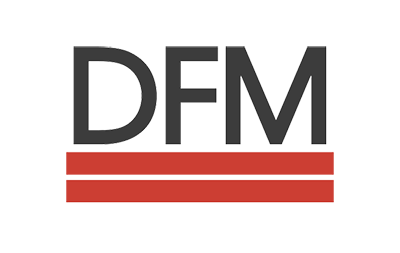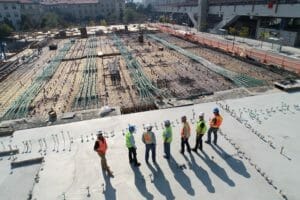Real estate development is a major commitment involving significant investments of time, labor, and finances. No one wants to start a project only to realize that it cannot be completed due to foreseeable circumstances. Fortunately, our due diligence and feasibility services are here to help. These services can help you make informed decisions and avoid costly mistakes by providing you with the necessary knowledge and insights before a project gets underway.
So, if you want to ensure the success of your real estate development project, be sure to take a closer look at the due diligence and feasibility services discussed below.
What Are Feasibility Studies?
Before starting any real estate development project, it is important to conduct feasibility studies. Feasibility studies are assessments and analyses conducted by experts before starting a project to determine if it will be viable.
Feasibility studies involve determining the viability of the project economically, technically, legally, demographically, and market-wise. The feasibility study reports help developers and property owners estimate the cost of development, competition, and demand for the project. It also identifies the potential risks that may be encountered during the development process.
What Is Due Diligence?
“Doing your homework” is a popular statement in most dealings. And that is simply what due diligence is, doing your homework before investing in a real estate project. Due diligence involves thorough investigation and scrutiny of the facts available about a project, property, or land before investment.
When doing your due diligence, it is essential to investigate the legal, financial, and environmental risks that might affect the development process. The due diligence process involves looking into existing land leases, title deeds, property surveys, environmental assessment reports, and the financing options available.
Cumulatively, due diligence and feasibility studies help developers and investors to make informed decisions when it comes to real estate development. They shed light on the potential risks and challenges associated with a particular development. Hence, developers can determine if a project is viable.
Due diligence and Feasibility Services
Some feasibility studies conducted before development include:
1. Environmental Site Assessment (ESA)
An environmental site assessment is the process of conducting a comprehensive search into the present and past uses of a property to evaluate the potential environmental liabilities. An ESA aims to determine if the real estate property has been contaminated by recognized environmental conditions. There are two phases of Environmental Site Assessment.
Environmental Site Assessment Phase 1
ESA phase 1 is the initial stage of site assessment to determine any environmental contamination. This phase involves a visual and historical investigation of the property.
The process of ESA phase 1 includes:
- Visual assessment by an expert to identify any potential contaminant.
- Historical record analysis to identify previous and current land use and what potential environmental impact they had.
- Historical investigation of previous ESA reports.
If a Phase 1 investigation shows that there is no potential environmental risk, a clearance certificate is issued. Otherwise, there is a need to proceed to phase 2.
Environmental Site Assessment Phase 2
A Phase 2 environmental site assessment is conducted only if the reports from Phase 1 indicate that there are potential environmental risks.
Phase 2 involves:
- Sampling of soil and underground water for testing.
- Testing of the samples to determine the extent of contamination.
- Preparation and filing of a record of site report with the relevant authorities.
2. Wetland Identification and Delineation Study
Wetland identification is the process of identifying and characterizing an area that is seasonally or permanently saturated with water. Wetlands can be identified by the vegetation in those areas, soil, and hydrology.
Once a wetland is identified, the boundaries are then mapped using a standard procedure. This process is known as wetland delineation. The results of these processes are documented for future reference and permit issues.
3. Dry Utility Study
A Dry utility study is the assessment of the site to determine the existing utilities such as gas, electricity, and telecommunication. This helps in determining the utilities needed to accomplish the project.
This study also helps to determine the challenges that will affect the distribution of these utilities to the site and highlights how these constraints can affect the cost of utilities.
4. Dry Utility Budget
This is the estimation of the total cost of utilities. These include the cost of existing and new dry utility infrastructure, upgrades, permits and licenses, engineering and design costs, and construction costs.
5. Permit Expediting Study
A permit expediting study analyzes and manages the various permits and approvals required for construction or development projects using preliminary project information, including timelines, phasing, and parcel information.
Project owners obtain a more holistic understanding of permit submission requirements, reviews required, and estimated permit fees for the planned development. This allows them to make informed decisions before a project gets underway.
Why Use Feasibility and Due Diligence Services?
So, why should developers and project owners use feasibility and due diligence services?
Here’s why feasibility and due diligence services are key to real estate development success:
Reducing Project Risk
Feasibility services and due diligence identify the potential risks associated with a project even before it starts. This information gives the developers a chance to come up with plans to mitigate these risks, hence reducing the chances of project failure. It also provides insight into the viability of a project.
Better Planning and Decision-Making
Due diligence and feasibility studies provide the needed information about a project beforehand. And as the saying goes, information is power. With the financial, historical, demographic, and market reports, developers have enough information. This helps in choosing viable projects and knowing how to plan for their projects for success.
Environmental and Regulatory Compliance
Doing your due diligence and conducting feasibility studies will help developers ensure that their projects adhere to the set code and standards of the particular area they are developing. This will help to avoid some legal issues during and after development.
Saves Time and Money
Feasibility studies and due diligence can determine the viability of a project. Hence, developers and investors can avoid investing time, money, and resources in non-viable projects just to go to waste. These resources can be used in alternative projects that will offer a return on investment.
DFM Development Services — Developers’ Key to Real Estate Development Success
If you are a developer in the Washington, D.C. metro region, Virginia, or Maryland, then partnering with DFM Development Services is your best chance for the success of your real estate development projects. We offer comprehensive feasibility and due diligence services such as environmental compliance, dry utility coordination, and permit expediting.
Reach out to us today to get the best developer support services today.




